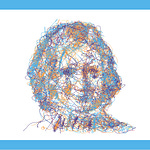This is Cognitive Revolution, my show about the personal side of the intellectual journey. Each week, I interview an eminent scientist, writer, or academic about the experiences that shaped their ideas. The show is available wherever you listen to podcasts.
Don Norman is a cognitive scientist and designer. He is perhaps best known for his book "The Design of Everyday Things." This was a landmark work which detailed the fundamentals of human-centered design. It is a conception of design not just based on how things looks, but how people think. And while this book has been most influential among designers and other practitioners, its origin is in Don's work as a cognitive scientist. Throughout his career he has found himself in many of the most exciting times and places in the field's history, including the Center for Cognitive Studies at Harvard, led by George Miller and Jerome Bruner, and in the very first years of UC San Diego's department of cognitive science. In this episode we talk about Don's career, his process for finding and learning about big ideas, the difference between academics and practitioners, the cognitive science origins of Don's design work, how Don went about crafting his style of prose, and a host of other topics. It's a fun one.
Like this episode? Here’s another one to check out:
I’d love to know what you thought of this episode! Just reply to this email or send a note directly to my inbox. Feel free to tweet the show @CogRevPod or me @CodyKommers. You can also leave a rating for the show on iTunes (or another platform). This is super helpful, as high ratings are one of the biggest factors platforms look at in their recommender system algorithms. The better the ratings, the more they present the show to new potential listeners.
Also: If you’d like to unsubscribe from these weekly podcast emails, you can do so while still remaining on the email list that features my weekly writing. Thanks for following my work!















Share this post